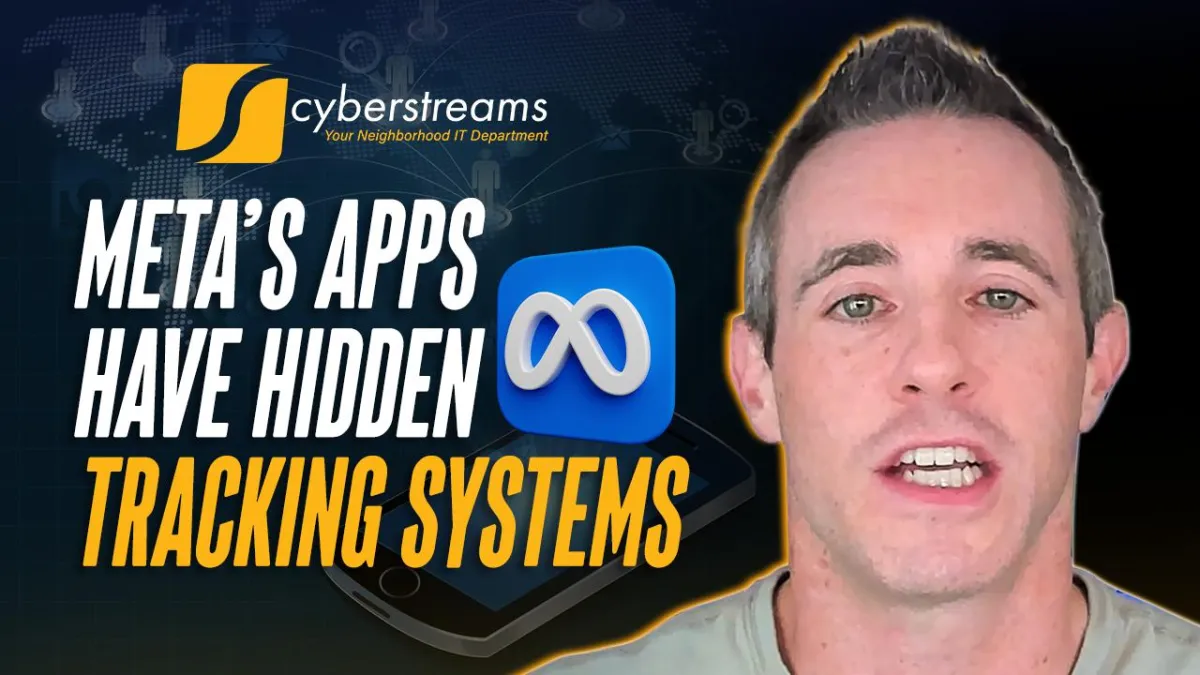
Meta’s Apps Have Hidden Tracking Systems
For better or worse, apps like Facebook and Instagram keep us constantly connected. They help us stay in touch with friends, family, and even our favorite brands. But if you're someone who values your privacy or works in a field where data protection matters, you might be shocked to learn how deeply and secretly Meta’s apps track what you do online.
This isn't just a personal concern it could impact your professional life and your business, too.
What’s Really Going On?
Imagine your phone as an apartment complex. Each app and browser has its own "unit," and they're supposed to stay in their own lanes. But recent tech reports have revealed that Meta’s apps namely Facebook and Instagram aren’t exactly minding their own business.
They’re opening hidden digital "peepholes" to spy on the websites you visit.
Here’s how it works: When you browse a website that uses Meta’s tracking code (which is embedded in more than 5.8 million sites as of 2025), it sends a digital fingerprint back to Meta’s apps on your phone. This connects your browsing activity what you read, shop for, or search to your social media profile, even if you’re in private browsing mode or using a VPN.
Creepy, right? That’s because it is.
Why It Matters, Beyond Personal Use
Ever searched for something sensitive like health information or a financial tool only to see related ads on Facebook or Instagram minutes later? Now imagine that type of information being linked to your identity, potentially influencing what insurance companies or hiring managers see in a background check.
And for professionals using their personal phones for work, the situation gets even messier.
If you’re checking work emails, visiting client websites, or accessing sensitive information on a device that also has Meta’s apps installed, you might be unknowingly sharing work-related data with Meta. The reverse is also true: your personal activity (like job searches or browsing hobbies) could leak into your professional sphere.
A 2025 study found that over 70% of websites now use Meta’s trackers. That means the risk is more common than most people realize.
The Bigger Problem: It’s Designed This Way
From a technical perspective, this kind of tracking is entirely hidden and undocumented. It bypasses your privacy settings, works around VPNs and incognito modes, and only happens if Meta’s apps are installed on your phone. This isn’t a bug, it’s intentional.
That’s what makes it so alarming.
At CyberStreams, we believe in helping businesses and individuals navigate technology without sacrificing their privacy. The good news? You can take back some control.
3 Ways to Protect Yourself Now
1. Use Privacy-Focused Browsers
Browsers like Safari (on Apple devices) and DuckDuckGo block many common trackers automatically.
2. Install Tracker-Blocking Extensions
Whatever browser you use, add extensions like uBlock Origin or DuckDuckGo Privacy Protection to block tracking scripts.
3. Limit the Number of Apps on Your Phone
Review what’s installed. If you don’t actively use an app, especially ones owned by Meta, consider deleting it. Fewer apps mean fewer potential privacy risks.
Conclusion
Meta’s hidden tracking systems reveal just how little control users have over their personal data, even when they think they’re browsing privately. What’s most concerning is that this isn’t a glitch or a security oversight; it’s a deliberate design.
This matters to everyone, but especially those in small and medium businesses where the line between personal and professional device use is often blurred. By taking a few practical steps, like switching browsers, installing tracker blockers, and minimizing app clutter, you can protect both your privacy and your company’s digital footprint.
At CyberStreams, we’re here to help you stay informed and secure in an increasingly connected world. Don’t let hidden systems decide your digital future, take control of your tech, one step at a time.
